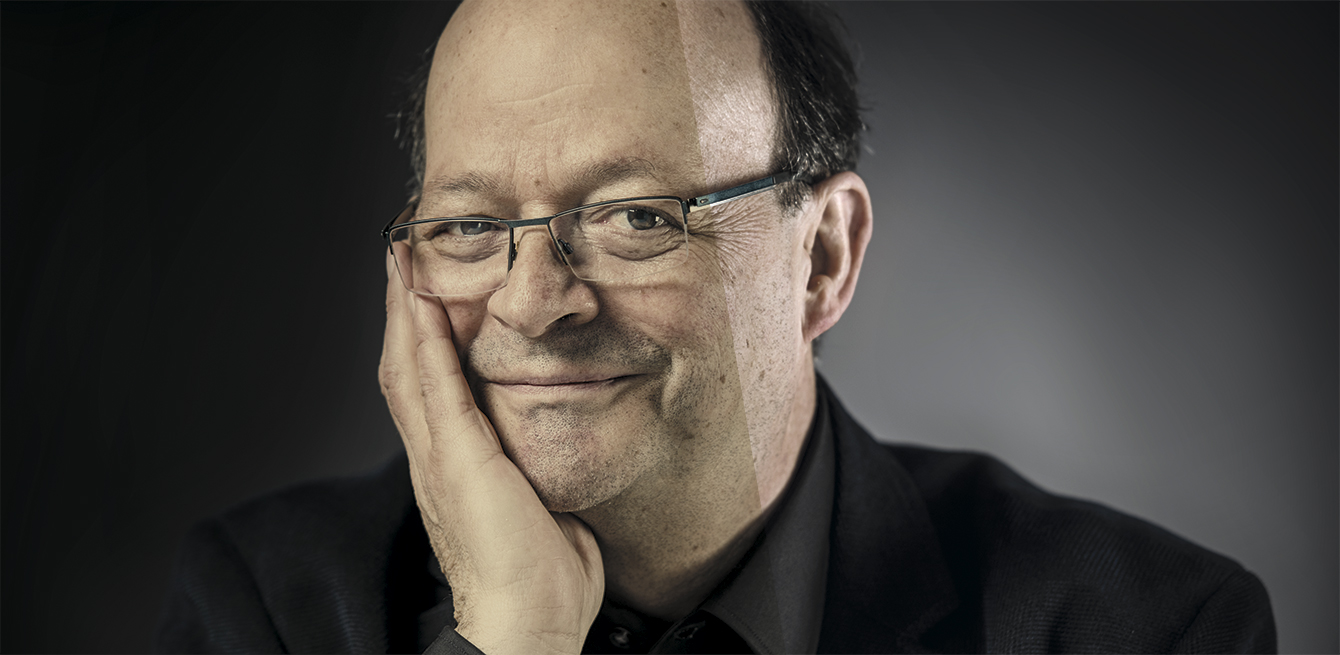
Jacques Gasser defends an approach that is both scientific and humanistic. He gives us a glimpse of what psychiatric care could look like in the future.
Psychiatry has always been a special type of medicine. It’s a medical discipline in that psychiatrists treat pathologies and diseases. But at the same time, it’s unlike other fields. When you break your arm, the injury is clearly identifiable. You receive treatment and your arm heals, regardless of whether you’re rich, poor, Muslim, or Catholic. In psychiatry, we can certainly identify a number of diseases, such as schizophrenia, depression and bipolar disorder, but the way they’re expressed changes depending on the context. Mental disease is “special” in that it affects the core of what makes us human. It disturbs our intentions, desires, will, beliefs – in short, our subjective experience. A bone, on the other hand, is not subjective. That might be true for the heart, but that’s another story! There are really two sides to our field. On the one hand, there’s the biological aspect, which places us firmly in the category of medicine (psychiatrists go to medical school, then complete an additional specialised programme). On the other hand, there’s also a subjective dimension, which makes psychiatry stand out from other medical disciplines.
Yes, probably. After all, the Lausanne University Hospital has only had a department of psychiatry for 15 years. Before, psychiatry was not only a separate speciality but also an entirely separate institution, with rather significant barriers. When we decided to join CHUV and to count ourselves among the rest of the medical field, most psychiatrists were proud to associate themselves with a larger institution and the academic world. However, others felt they were selling out to physical medicine and abandoning everything that made psychiatry special. Today, even though our integration has gone rather smoothly, some people continue to say we would work better if we were “off in our corner” and that we should focus more on this special field of medicine by emphasising its “specialness” as opposed to its “medical” nature.
The turn happened when psychiatry started to be seen as its own branch of medicine at the beginning of the 19th century! From day one, psychiatry was based on the scientific goal of understanding how the brain works. The purpose of confining a certain number of patients, who prior to that point were considered crazy, in psychiatric asylums wasn’t to exclude or get rid of them, but on the contrary to include them in medicine – meaning understand them better and monitor them over time. The goal was to gradually reintegrate them into a dialogue-based society. All psychiatric categories were created by observing these patients.
First and foremost, psychiatry is an attempt to communicate with human beings who, at first glance, seem completely unable to communicate.
Through these observations, we came to realise that we could communicate with even the “craziest” patients.
There was a major event in 1822. For the first time ever, doctors directly connected a psychiatric disorder, namely hallucinations, to a brain condition known as “general paralysis” at the time. A century later, we learned it was in fact syphilis. Tertiary syphilis causes encephalitis, a physical disease that can be clearly seen in the brain, which in turn leads to hallucinations. This discovery gave people a lot of hope. They thought, “That’s it! We’ve found it! Psychiatric disease comes from brain damage!” The problem is that no other similar discoveries were made for years after. Later, scientists found that Alzheimer’s disease presented clearly-identifiable cerebral pathologies that produced symptoms. What’s interesting, however, is that every time the origin of a disease was identified, it was based in neurology and shifted psychiatry more towards physical medicine. That’s still true of where we are now.
In essence, the opposite is true. Clinical neuroscience is gradually becoming a part of psychiatry. We think neuroscience is something very new, but it’s actually following on from what came before. Neurosciences offer much more advanced analytical methods, and the vast amount of knowledge that results helps reduce the stigma surrounding mental disease. That’s why we created a Psychiatric Neurosciences Centre in the Lausanne University Hospital's Department of Psychiatry. The centre’s research is really exciting because it has the potential to change our point of view. We’ve come to somewhat of an impasse with respect to how we understand the brain. Now is the time to think outside of the box – which is the hardest thing to do! At the same time, we’re taking care of patients every day and are obtaining pretty good results.
The public isn’t really aware of it, but psychotherapies, for example, are some of the most effective treatments in medicine.
We do need to be careful to not promise too much. Transitioning from the laboratory to the clinic is still difficult. The reality nowadays is that there aren’t any results from neuroscience research that can be immediately applied to patients. It’s true that we’re getting closer and closer, and we will find things, but patients might not reap the benefits until many years down the road.
I think psychiatry will have to be framed differently – probably as a new branch situated between biology and subjective experience. Neuroscience might be what gets us there, in which case there will have to be a special kind of connection between clinical practice and neuroscience.
We’ll need people who think differently – a bit “out of the box”.
We’ll also need to continue our work in providing a continuum of care from child psychiatry and adolescent psychiatry to adult and senior psychiatry. Finally, connected objects will allow us to communicate even better with patients and their families.
Jacques Gasser, a specialist in issues related to the legal aspect of psychiatry, is the director of the Lausanne University Hospital's Department of Psychiatry and the physician in chief of the Legal Psychiatry Institute. His publications include Aux origines du cerveau moderne (Fayard, 1995) and Pour une psychiatrie scientifique et humaniste: l’école lausannoise (Georg, 2011) in collaboration with Patrice Guex. His latest work, Le juge et le psychiatre, written with the Swiss federal judge Jean Fonjallaz, was recently published under Stämpfli / Médecine et Hygiène.

Le juge et le psychiatre - Une tension nécessaire, Jacques Gasser and Jean Fonjallaz, Stämpfli / Médecine et Hygiène (2017)